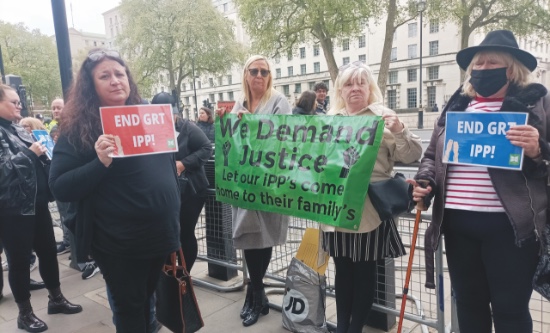
As we reported in the last issue of FRFI, in September 2022 the House of Commons Justice Committee published the report of its inquiry into the continuing legacy of the Imprisonment for Public Protection Sentencing Law (IPP), recommending that IPP prisoners be sent back to court to be resentenced to determinate sentences with a definite release date. To date the government has failed to respond to the proposal. JOHN BOWDEN reports.
The IPP was a form of indeterminate sentence, or de-facto life sentence, in which prisoners were given a minimum term to serve but no maximum. Such sentences were often meted out for relatively minor offences, and this was reflected in the fact that many of the minimum terms in the initial five years of the sentence being in force were for very short periods of less than two years. Although the law was amended in 2008 and the IPP abolished altogether in 2012, this was not retrospective and a decade later almost 3,000 IPP prisoners remain imprisoned, many having served several times their initial tariff. The Justice Committee found IPP sentences had caused hopelessness and despair, resulting in high levels of self-harm and suicide.
The expectation was that Secretary of State for Justice Dominic Raab would respond formally to the report by 28 November. This did not happen. However on 22 November, Raab appeared before the Committee in a session designed to question him on various aspects of the work of the Ministry of Justice (MOJ). He was asked about the IPP report, but brushed aside its recommendations, insisting the Parole Board was doing a fine job of dealing with currently imprisoned IPP prisoners, that many were released or moved to open conditions and that this was how things should continue.
Raab deserves an award for barefaced lies. The statistics he quoted to back up his notion that the Parole Board system was working for IPPs were from the financial year 2021/22, ie before June 2022 when Raab himself spearheaded the introduction of new guidelines for Parole Board hearings which have resulted in it being far more difficult for lifers to progress to open prison and release.
Data released by the MOJ in November 2022 showed that in the six months prior to these rule changes, 54% of applications by indeterminate sentence prisoners for a move to open prison were accepted, whereas in the four months after Raab changed the rules, only 12% were successful. Although not enforced in every case, it is usually expected that indeterminate sentence prisoners will spend a period in open conditions prior to being accepted for release, so the block on their getting there is effectively a block on their ever being freed.
We now have a situation in which an increasingly right wing Justice Ministry dominated by the likes of Raab and Suella Braverman wields the power to determine prisoners’ release, rather than either the Parole Board or the courts. ‘Life means life’ is now the dominant ideology and the situation of IPP prisoners is even more inhumane.
The IPP was introduced in 2005 by the Blair government, replacing the earlier ‘two strike life sentence’, introduced in 1997. These measures, which impose a mandatory prison sentence for ‘repeat offenders’, deliberately replicated the US ‘three strikes and you’re out’ or Persistent Felony Offender Law, which resulted primarily from President Clinton’s ‘war on drugs’ during the 1990s. Clinton’s aim was largely to target young black men and remove them permanently from their communities. This racist punishment ethos inspired the British state to bring in similar laws, with the IPP functioning alongside the dragnet sentencing process of ‘joint enterprise’.
Britain imprisons more people than any other country in Western Europe, and has the highest number of life sentence prisoners anywhere in Europe. The current government’s blatant disregard, not only for the lives and sanity of those it incarcerates, but also for the recommendations of its own parliamentary committee, graphically demonstrates the open use of imprisonment as a weapon of social repression. The fight to free IPP prisoners should be a frontline in the struggle against an increasingly repressive state and a cause to which all political activists commit themselves.
Fight Racism! Fight Imperialism! No 292, February/March 2023




